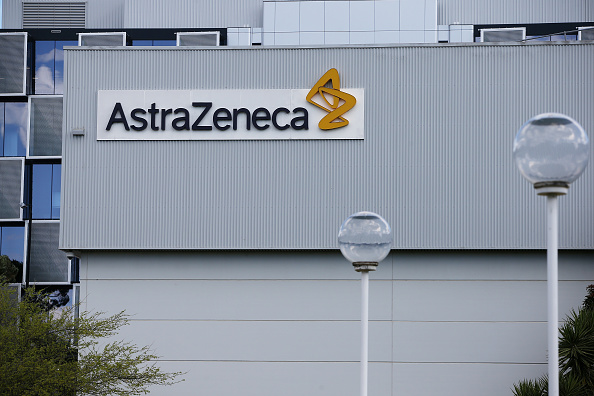Astrazeneca shares plummet despite FTSE 100’s biggest firm posting revenue boost

Astrazeneca, the biggest company listed on London Stock Exchange, has continued its impressive coronavirus recovery with a six per cent increase in revenue for 2023.
The Anglo-Swedish giant based in Cambridge posted $45.8bn (£36.25bn) in revenue for the financial year 2023, despite a £3.6bn hit from the sharp decline in vaccinations for COVID-19.
Astrazeneca, which has a market capitalisation of more than £152.88vb, reported a gross profit of more than $37.5bn, up from $32bn in 2022, while its profit before tax was $6.8bn, an increase from $2.5bn.
Despite the increase in revenue and profit, Astrazeneca’s shares dropped by more than five per cent after the open, wiping a cool £7.64bn off.
It said, excluding coronavirus, its total sales increased by 15 per cent, as its chief executive predicted “double-digit earnings” for the year ahead.
This comes after Astrazeneca raised its annual earnings forecast in November, helped by strong demand for its cancer drugs, saying at the time it expected core earnings per share to increase by a low double-digit to low-teens percentage for the year. Last July, it made over $22.2bn (£17.3bn) – a four per cent increase – during the first half of 2023.
Among Astrazeneca’s best performers were its landmark cancer medicines, including Enhertu, Lynparza and Truqap, which was approved in the US on 16 November 2023.
Pascal Soriot, AstraZeneca’s chief executive officer, said: “As AstraZeneca celebrates its 25th anniversary, we are pleased to report another year of strong financial performance and scientific progress, with double-digit earnings growth, and investment in exciting areas of science, including antibody-drug conjugates and cell therapies, that lay the foundations for long-term success.
The CEO said this year they expect another year of growth “driven by continued adoption of our medicines across geographies”.
Soriot added: “Our differentiated and growing portfolio of approved medicines, global reach and rich R&D pipeline give us confidence that we will continue to deliver industry-leading growth.”
In September, it was reported that Soriot was considering his departure from the company.
Astrazeneca’s share price soared by more than eighty per cent in the last five years, due in large part to the production of coronavirus vaccines.
As the global pandemic subsided, however, production has hugely tailed off and its shares have fallen by more than two per cent in the last 12 months.
Derren Nathan, head of equity research, Hargreaves Lansdown saidL “AstraZeneca has shrugged off falling sales of COVID-19 medicines with a strong 2023 performance. And with three new medicines approved since the third quarter, it’s not resting on its laurels.
“The Research & Development conveyor belt is running at full tilt with 27 Phase III trials in progress across 18 medicines. That doesn’t come cheap though. Meanwhile, acquisitions remain on the table with two announced in December alone, and also $300m organic investment into a state-of-the-art cell therapy research facility this month.
“There may be frustration in some camps that dividends haven’t been given higher priority, but Pascal Soriot is laying strong foundations for sustainable long-term growth. There have been some disappointments in clinical results but given the quality of the pipeline, and solid outlook, the mid-teen earnings multiple doesn’t look too demanding.”
